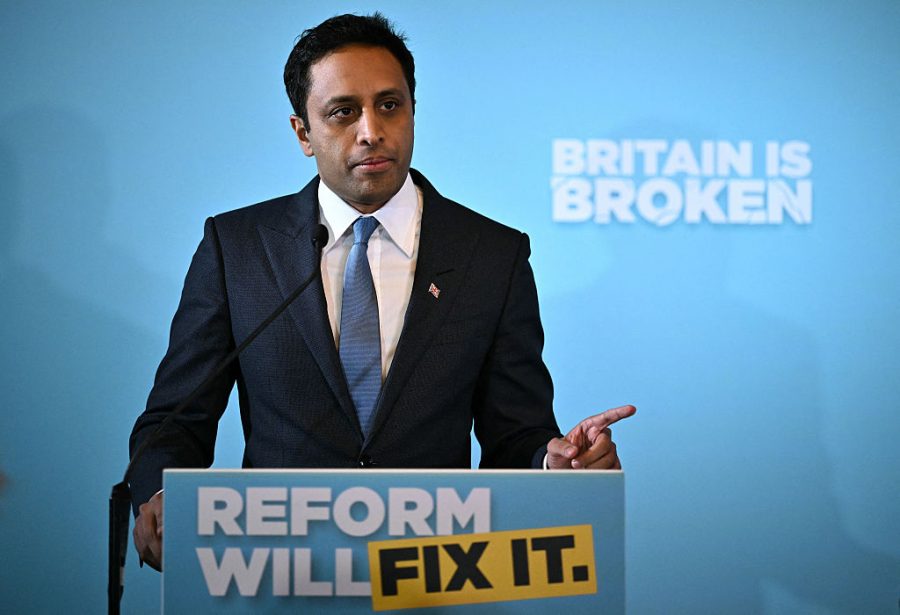The sudden resignation of Reform UK’s chairman Zia Yusuf came as a shock in Westminster yesterday – but is unlikely to do the party much lasting damage. Yusuf, 38, a successful businessman and a former Goldman Sachs banker, said in a terse and huffy statement that working for the election of a Reform government was no longer a good use of his time.
While Yusuf gave no other specific reason for his departure , the move was almost certainly triggered by his anger at new Reform MP Sarah Pochin’s question to Sir Keir Starmer on Wednesday. Pochin, who won the Runcorn and Helsby seat from Labour last month, asked the Prime Minister if he would consider banning the burqa – the face cover worn by pious Muslim women – as other European countries have done.
Yusuf owed his rapid rise in Reform entirely to Farage’s favour
Yusuf, an observant Muslim himself, tweeted that the question was ‘dumb’. Banning the burqa is not Reform policy, but Yusuf, a protégé of Reform leader Nigel Farage, has always seemed an unlikely figurehead in a party which has made curbing immigration one of its chief and most popular policies.
Nigel Farage attempted to play down the departure of the man whose rise he has promoted, with an anodyne statement blaming the resignation on the tough demands of front-line politics and praising Yusuf for his role in professionalising the party. ‘Politics can be a highly pressured and difficult game and Zia has clearly had enough. He is a loss to us and public life.’ He made no reference to the burqa row.
Yusuf owed his rapid rise in Reform entirely to Farage’s favour. He only joined the party eleven months ago, having previously been a Tory donor and supporter. He swept through the Reform HQ and party in the regions with the force of a cyclone, offending many with his ruthless style and triggering a spate of resignations and sackings. This caused massive resentment among Reform officials and activists who made their displeasure clear to Farage. But the party leader was pursuing a policy of wooing moderate voters and having a Muslim chairman who was the son of Sri Lankan migrants was an obvious way of defusing any accusations of racism clinging to the insurgent party.
One victim of Zia’s arrival was former Reform MP Rupert Lowe, who was expelled and accused of threatening the chairman with violence – a charge dismissed after a police investigation. But Lowe’s many supporters in the party will view Yusuf’s resignation with glee as a sweet revenge.
Those feelings of joy will be widely shared among Reform members and supporters who had despaired of the invulnerable influence of the man they saw as a Johnny-come-lately upstart with the ear of the boss.
Though this resignation will excite Westminster bubble dwellers for a brief while, it is unlikely to have much adverse effect on Reform voters at large. With the party doing well in yesterday’s Scottish MSP by-election in Hamilton, and if it does as well in the coming Senedd poll in Wales, Reform’s rise should continue unimpeded.






Comments